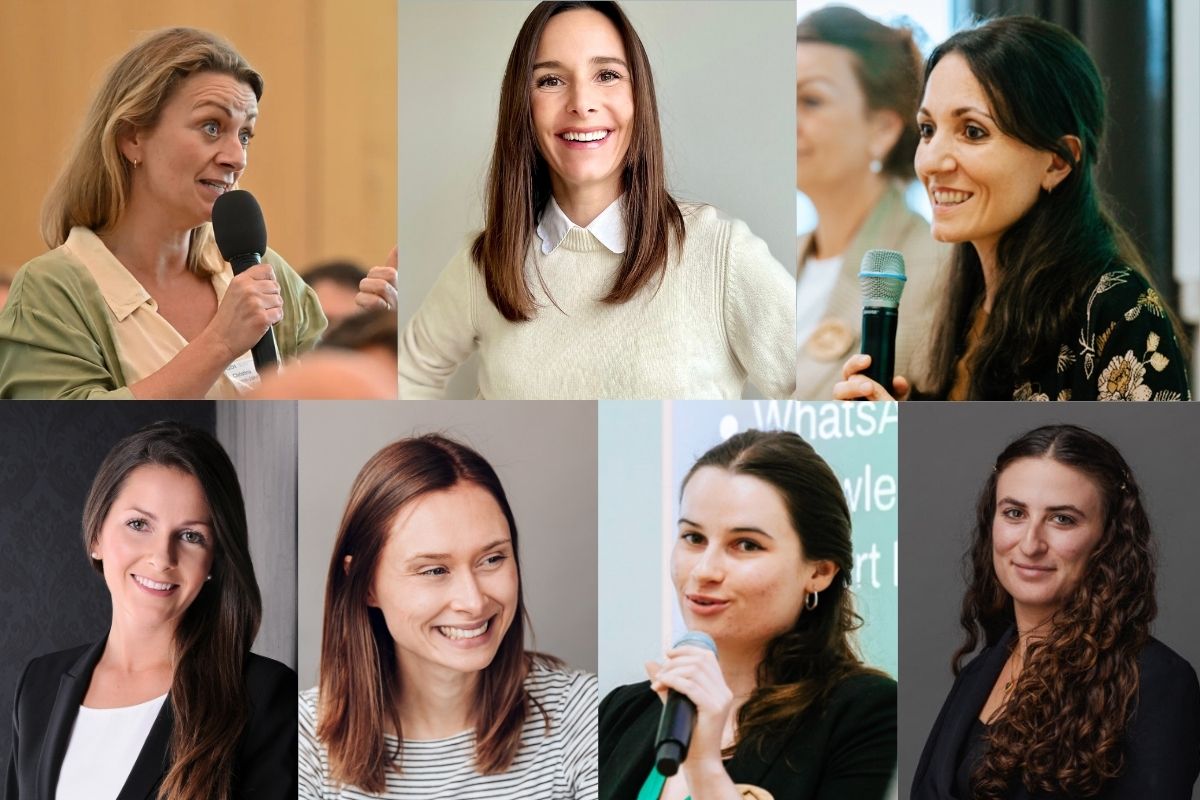Valley partner, The Cultured Hub, has...
From pivot to purpose: how Switzerland turns careers into food system change
From pivot to purpose: how Switzerland turns careers into food system change
We often hear that the future of food will be shaped by breakthrough technologies, smarter policies, and bold business models. But there’s another ingredient that’s just as vital — and often overlooked: people.
The ingredient we don’t talk about enough
As Christina Senn-Jakobsen, CEO of Swiss Food & Nutrition Valley, recently argued, talent is the true engine of resilience. The question is: how do we nurture it?
Switzerland remains the most competitive country in the world when it comes to developing, attracting and retaining the human capital required for sustainable growth. This finding comes from the IMD World Talent Ranking 2025. What lessons can we learn from what Switzerland is getting right?
Across Switzerland’s food innovation ecosystem, talented individuals are being supported at the moments that matter most – when they take a leap, change direction, or step into leadership. These career “pivot points” don’t just redefine the lives of the professionals themselves. When talent is supported, it can shape the resilience of our food systems, by bringing fresh skills and perspectives to longstanding challenges.
We asked four innovators to share their stories and explain how they, with the right support, were able to turn career change into driving change in the food and nutrition sectors.
“SNFV is more than just support for founders – it acts as a catalyst that connects young innovators with industry leaders. That unique mix of passion, expertise, and collaboration is what makes Switzerland’s ecosystem so powerful.”
Scaling bold
As a student, Priscilla often asked herself: why does taking vitamins feel like a chore? Pills are boring, clinical, and easy to forget. After completing her Master’s in Food and Beverage Technology at ZHAW, she set out to change that and founded ALLSUPPS in 2021 – creating functional multivitamin fruit gummies that are enjoyable and effective. Her studies gave her the scientific foundation to design safe, high-quality, and proven products.
What started as a bold move straight out of university has grown into a nationwide success: ALLSUPPS is now listed in Coop, expanding across Swiss pharmacies, and has tripled its revenue in the past year. As a young female founder in the male-dominated food space, Priscilla’s journey shows the difference a supportive network can make. “What makes the Swiss ecosystem special is that it gives young founders like me access to expertise and networks that normally take years to build,” she says. “That support has been key in turning ALLSUPPS from an idea into a company shaping the future of nutrition.”
For Priscilla, curiosity about food and health has always gone hand in hand. After completing her Master’s in Food and Beverage Technology at Zurich University of the Applied Sciences (ZHAW), she wasted no time in putting her knowledge into practice. In 2021, she founded ALLSUPPS fresh out of university. Launching a company so early in her career was far from easy. From navigating quality control to learning how to pitch as a first-time CEO, she faced plenty of steep learning curves. But Switzerland’s food innovation community gave her access to peers and mentors who believed in her. “When you’re starting out, you need encouragement just as much as expertise,” she reflects.
Priscilla’s story shows how early support can turn potential into purpose — and why ecosystems that empower young women founders create ripple effects for years to come.
“The Swiss startup ecosystem is robust and continuing to evolve to support the incredible ideas and opportunities of Swiss entrepreneurs. Abrinca is thankful to have this network and support to provide maximum chances to become an impactful global enterprise.”
From global corporate to Swiss startup
After two decades working in the corporate world, Tom felt a strong pull toward a new challenge. His career had been about building businesses and leading teams in a structured environment, but he wanted the hands-on experience of testing himself. The risk was clear, but so was the reward: the freedom to make the decisions and the opportunity to truly own the outcome.
Today, as Chief Commercial Officer at Abrinca Genomics, that vision has become reality. The company has built a software platform that makes microbial genome analysis more accessible for researchers in food, agriculture, health and beyond. “There are still no commercial solutions that make it easy for researchers to analyse microbial genomes,” Tom explains. “That’s the market we are building.”
This entrepreneurial journey is one that Abrinca could not have undertaken alone. The world-class Swiss startup ecosystem has been pivotal in helping Abrinca to refine its strategy and grow its reach. The company has received guidance and funding from organizations like VentureLab, Innosuisse, and the Standortförderung Kanton Bern, while benefiting from the mentorship and global networks provided by programs like MassChallenge Switzerland and SFNV.
The pivot from a corporate career shows that experience, when channeled with purpose and paired with the right ecosystem support, can be a powerful force for building startups that address global market needs.
“Food systems are complex by nature. Addressing them requires not just science, but expertise from practice, partnerships and a willingness to integrate different perspectives.”
Building bridges across sectors
Martijn Sonnevelt’s career has spanned research, policy, and now, facilitation of cross-sector collaboration. A trajectory that highlights the value of connecting diverse worlds to advance sustainable food systems. With a PhD in agricultural economics from ETH Zurich, he built his career at the FAO in Rome and the Swiss Federal Office for Agriculture, bridging science, policy, and practice.
In 2017, he returned to ETH Zurich to become Executive Director of the World Food System Center. There, he brings together researchers, students, companies, and policymakers to address challenges no single discipline can solve.
“Food systems are complex by nature,” Martijn says. “Addressing them requires not just science, but expertise from practice, partnerships and a willingness to integrate different perspectives.”
His pivot shows how Switzerland’s ecosystem doesn’t just create startups. It builds connectors supporting the translation of concepts and innovations across sectors and borders.
Learn more about the World Food System Center
There are many people like me who, after a successful career in the food industry, are willing to bring their expertise into young innovative companies who truly need it. But it requires a vibrant, effective ecosystem to connect the dots and create value. I could not have built my second professional life without it.”
From executive to ecosystem mentor
After nearly two decades shaping global innovation at Mondelēz International, where she created the SnackFutures Incubator, Ingeborg Gasser-Kriss made a bold pivot: instead of leading innovation from within a big established company, she directed her energy towards supporting emerging food innovators.
Today, she is an advisor for startups in the food and foodtech sector, mentors at EIT Food, Kickstart Innovation, the ProVeg Incubator and the EIC Scaling Club, and serves as the Co-Director of Founder Institute Switzerland. Across these roles, she helps founders sharpen value propositions, build customer-centric strategies, and create successful collaborations with industry partners. At the same time, she continues to work with established companies in Switzerland and Europe, as a Board Member at SV Group and as an Innovation Advisor at her company Agent21.
“Big corporations and young startups need each other, but they often struggle to collaborate effectively,” Ingeborg reflects. “Having worked on both sides, I am often able to anticipate the potential points of friction and help create a better mutual understanding and a more productive outcome.”
By channeling her experience into mentoring and governance, Ingeborg is multiplying her impact — proving that the wisdom of seasoned professionals is one of the ecosystem’s most powerful assets.
Why Switzerland’s model works
These four journeys reveal why Switzerland is emerging as a global food innovation hub: it’s not just about technology pipelines or funding streams, but about creating an ecosystem that supports people at every stage of their careers.
- Students and young founders are encouraged to take their first bold steps.
- Mid-career professionals are supported in pivoting into entrepreneurship.
- Cross-sector leaders create platforms for collaboration.
- Senior executives are able to reinvest their expertise to accelerate others.
It’s a layered, inclusive model that makes Switzerland both a talent magnet and a talent multiplier.
What’s your next pivot?
Resilient food systems aren’t built by technology alone. They’re built by people — people who dare to change course, who bring their skills into new spaces, and who are supported by communities that believe in them.
Switzerland’s ecosystem shows what’s possible when we treat talent not as a resource to exploit but as a system to nurture. The results are more than jobs or startups; they’re purpose, belonging, and systemic change.
So here’s the question: what’s your next pivot — and how might the ecosystem help you turn it into impact?
Looking for your next role in the Swiss food innovation ecosystem?
Latest News
The Cultured Hub unveils plant cell culturing for cocoa, coffee, and other ingredients
Pow.Bio and Bühler join forces to advance next-generation precision fermentation
Pow.Bio, the pioneer in AI-enabled...
The perfect mix of talent and tech: empowering startups in the Swiss food ecosystem
Innovation succeeds when the right...
Tetra Pak acquires Bioreactors.net to accelerate solutions for New Food
Tetra Pak Processing Equipment...










